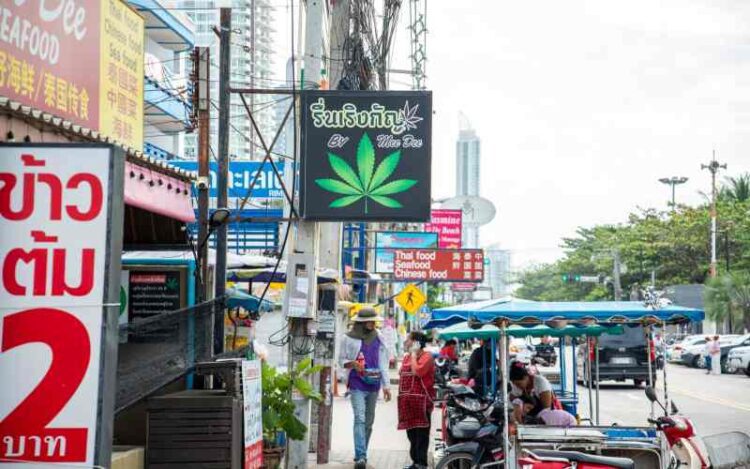In Thailand, a significant number of cannabis stores have emerged following the country’s landmark decision to decriminalize cannabis, making it the first Asian country to do so. This development continues unabated despite increasing opposition, particularly from the nation’s newly appointed prime minister.
Thailand officially removed cannabis from its list of prohibited substances on June 9, 2022. This historic move did not equate to legalizing it for recreational use, according to government officials. The new laws in Thailand have legalized the cultivation and trade of marijuana and hemp. Eateries and cafes can now offer cannabis-infused food and drink, provided the THC content is below 0.2%. Higher THC concentration products are reserved for medicinal use.
Prime Minister Srettha Thavisin of Thailand has initiated a vigorous anti-drug campaign, as reported by the Bangkok Post, with a focus on methamphetamine. However, part of his agenda includes revising the nation’s cannabis policies. “We have unanimous agreement from all coalition and opposition parties that addressing the drug issue is a priority,” he stated. The decline in meth prices has led to increased usage in Thailand, prompting the prime minister to consider reclassifying cannabis as a narcotic.
In response to the opening of approximately 6,000 cannabis outlets and the exploitation of legal grey areas for the sale of psychoactive cannabis, Thailand’s leaders are expediting the overhaul of cannabis regulations, despite the THC limit imposed.
According to a report by The Straits Times, the recent decriminalization has resulted in a “regulatory vacuum” and a surge in the number of dispensaries, now numbering over 6,000 across the country.
Advocates for cannabis argue that implementing additional regulations, like a narcotics tracking system, might actually be beneficial for consumers.
Recognizing the industry’s significant expansion, government officials, including Health Minister Cholnan Srikaew, emphasize the need to balance economic and health considerations, prioritizing health.
Before the May elections, a new draft bill on cannabis in Thailand failed to pass through parliament. This bill underwent substantial modifications due to concerns over potential addiction resulting from cannabis misuse.
The Guardian reports that Thavisin plans to amend the cannabis law, restricting its use solely to medicinal purposes within a six-month period. His administration, which began last August, had campaigned on a strict anti-drug platform. Notably, Thavisin’s Pheu Thai Party, now in coalition with the Bhumjaithai Party led by Deputy Prime Minister Anutin Charnvirakul, was instrumental in the initial decriminalization of cannabis.
“We need to correct the law,” Srettha stated in an interview with Bloomberg‘s Haslinda Amin in New York, during the UN general assembly. Bloomberg shared a video clip of this interview on X, previously known as Twitter.
“It needs to be rectified. We can have that regulated for medical use only,” he further explained.
Srettha unequivocally stated “no” when questioned about the possibility of a compromise for recreational cannabis use, citing recent widespread issues associated with its use.
Thailand has been gradually liberalizing its cannabis laws for years. It was the first Southeast Asian country to legalize medical cannabis in 2018, followed by legalizing the production and sale of medical cannabis, including flowers, two years later.
Despite being a beacon of cannabis tolerance in a region where countries like Singapore and Malaysia enforce severe punishments for cannabis offenses, Thailand’s current prime minister is aiming to ensure that only medical dispensaries remain operational.
It is anticipated that the revised cannabis bill will be presented for Cabinet approval in December.
IN OTHER NEWS: Albania Passes Legislation to Allow Medical Cannabis Use









